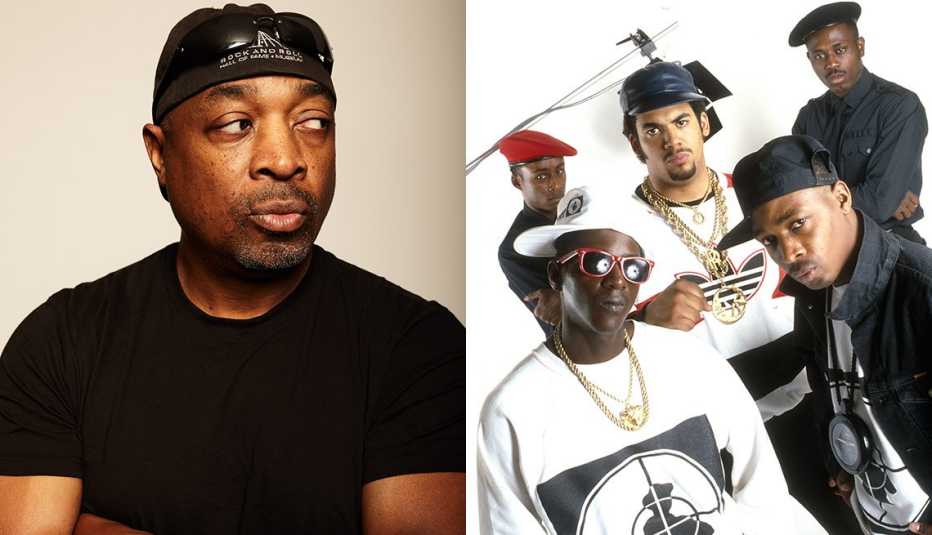Staying Fit


Part of the AARP Hip-Hop at Middle Age series
What, generally, are you doing with your life now?


AARP Membership— $12 for your first year when you sign up for Automatic Renewal
Get instant access to members-only products and hundreds of discounts, a free second membership, and a subscription to AARP the Magazine.
I’m juggling two bands around the world. I have two adult children now, one younger one, 8 years old. I’m doing what I want to do.
What did you want Public Enemy to be? Was it exactly what you wanted it to be?
There were a whole bunch of personalities. The best thing that I could see was how we all played sports. We were rough and rugged sports guys. I think a lot of problems in music and culture is that a lot of people never played sports. You wouldn’t make it on a football team thinking about just you. Regardless of what you think, you’ve got to make it fit. You all are on the front line. The thing that comes closest to it is war. Sports emulate war.
I have the voice that would make a cheap microphone sound like a million dollars. Someone would come after me and be like, “I can’t sound like that.” I said, “Yeah, either you got it or you don’t.” What made you a top MC back in the day was your ability to cut through and be heard, regardless of what you said.
I remember you talking about wanting to inspire 100 minds that would go on to change the world. Do you think that you have accomplished that?
We wanted to introduce 5,000 political leaders. That was a narrative in our belief of who we were and what kind of group this was. You make grandiose statements and try to walk your way up to it.
Do you still relate to hip-hop when you hear new songs coming out? Do you still relate to what they’re talking about in modern hip-hop?
What strikes me in my listening time, as well as doing a radio show for the last 10 years, I break all kinds of music and what’s brand new. I cover it. I promote it. I swim in it.
Sometimes I might just want to hear Creedence Clearwater Revival and sometimes I want to hear Big Jay McNeely. The truth is that hip-hop is all of that. Hip-hop, once you dig it and dug it and picked it up and displayed it and played it, that’s all hip-hop. That’s the original definition that got me into hip-hop.

































































More on Entertainment
The Best Baseball Documentaries to Stream Now
Watch docs from Ken Burns, Spike Lee, ESPN and more